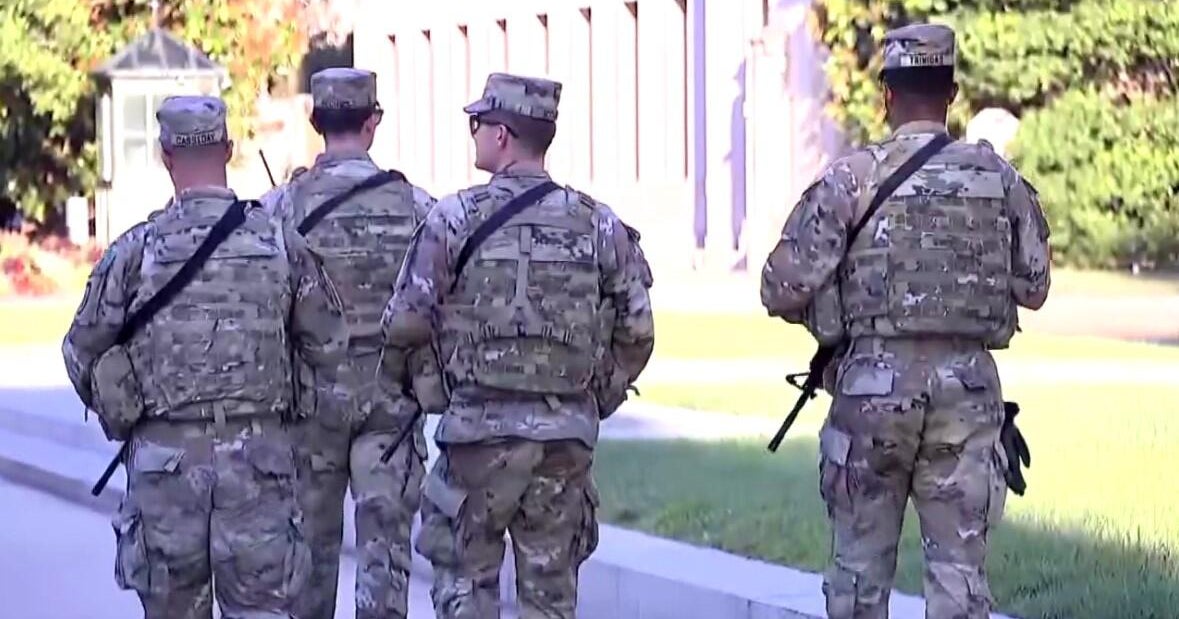President Trump on Tuesday claimed, “I have the right to do anything I want” as Chicago waits to see if he will follow through with his threat to send National Guard troops to Chicago, but a retired Illinois National Guard general said those troops would be very limited in what they could do.
The White House has yet to say if or when the president will deploy any troops in Chicago as part of his plan to crack down on crime, similar to his approach in Washington, D.C.; but the former head of the Illinois National Guard said those soldiers would be limited in what they could do if called up.
When you go to the website of the Illinois National Guard, and you click on leadership, Gov. JB Pritzker is listed at the top of the food chain. He’s authorized to deploy the National Guard, but there are exceptions.
At Congress.gov you’ll find what’s called The Posse Comitatus Act, which spells out the three instances when the president can utilize a state’s National Guard: “to repel an invasion, suppress a rebellion, or execute federal laws when he is unable to execute them using the regular forces.”
If the president activates the National Guard in Chicago, Gov. JB Pritzker has said he’ll take this to court, arguing the Posse Comitatus exceptions were not met, but President Trump on Tuesday asserted he can send in the National Guard no matter what the governor wants.
“I would have much more respect for Pritzker if he’d call me up and say, ‘I have a problem, can you help me fix it?’ I would be so happy to do it,” President Trump said. “I have the right to do anything I want to do. I’m the president of the United States. If I think our country’s in danger, and it is in danger in these cities, I can do it. No problem going in and solving his difficulties, but it would be nice if they’d call and they’d say ‘Would you do it?’ And we’d do it in conjunction.”
Insiders call this unchartered waters.
“In my career, I haven’t ever seen it done this way,” said Retired U.S. Army Maj. Gen. Richard Hayes, the former adjutant general of the Illinois National Guard. “[President Trump] doesn’t have the authority under the law to send in the guard, a federalized guard, to perform law enforcement duty.”
What could those troops do if they were sent in?
“They could stand on corners and basically do nothing. They could certainly protect federal property, that’s a reasonable thing to do,” Hayes said. “But it’s not a law enforcement function.”
That might explain why the president on Tuesday signaled what he would like to have happen, rather than expressly saying he will send in the National Guard.
“You would think Illinois would have such a problem with crime, such a bad governor. He should be calling me, and he should be saying, ‘Could you send over the troops, please? It’s out of control,” the president said.
Pritzker has made it clear he will not be making any such request.
“Mr. President, do not come to Chicago,” Pritzker said Monday. “You are neither wanted here nor needed here.”
Two final things to point out. Chicago is different than the Washington, D.C., deployment because, one: they don’t have a governor and the president does exert more control there than almost anywhere in the country over the National Guard. But because the National Guard doesn’t have the authority to arrest or handle law enforcement, they would be largely restricted to protecting federal buildings and federal agents in Chicago.
Chicago also is different than the Los Angeles deployment earlier this year, because that was so deeply rooted in immigration issues. In L.A., the National Guard assisted federal agents on the front lines of that issue – think ICE, ATF and FBI.
What is similar to the L.A. situation is both the governor of California and the mayor of Los Angeles opposed deploying the National Guard there, just as is the case with Chicago. The White House did it anyway, and now the state is suing the Trump administration, accusing the president of violating the Posse Comitatus Act.
More from CBS News

